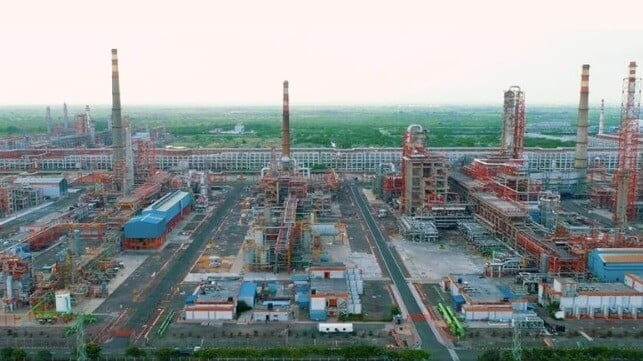"Refining Loophole" Let Billions Worth of Russian Fuel Into EU in 2024

Russian oil is banned from the European Union because of the ongoing invasion of Ukraine, but European traders have continued to import huge quantities of refined products made from Russian crude. Europe has no rules on the supply chain for imported gas, diesel and other refined products, so long as they come from unsanctioned refiners - and some of those refiners are making a substantial profit.
The leading "refining loophole" exporter is India, where several large refineries have a busy trade with Russia's energy producers. These refiners import quasi-sanctioned oil cargoes aboard "dark fleet" tankers, then export fully legitimate clean products.
According to a new study by the Center for the Study of Democracy (CSD), the EU imported 13% of its seaborne cargoes of diesel and jet fuel from India over the course of 2024, driven by a big jump in imports from three refiners that relied heavily on Russian feedstocks. These petroleum products were valued at about $5 billion, according to CSD, and were about 50% Russian-origin (based on feedstock blend). This made India the largest foreign supplier of petroleum products to European buyers, according to the Centre for Research on Energy and Clean Air (CREA).
"In the first three quarters of 2024, exports to the EU from the Jamnagar, Vadinar (in Gujarat) and new Mangalore refinery - which are increasingly reliant on Russian crude - saw a 58 percent year-on-year rise further," CREA's researchers reported.
The tide may be turning: as Russian producers get better at circumventing the G7 "price cap," they are able to command a higher price for their oil, and the deep discount once available to Indian refiners has narrowed. In November, Indian imports of Russian oil dropped by more than half, according to CREA. Indian private refiners are also exporting far more of their output to Asia, and Europe has dropped to fourth place as an export destination for Indian-refined products of all feedstocks, energy consultancy Vortexa reports.
EU takes aim at Russian energy
Russian energy imports are in the crosshairs for the new European Commissioner for Energy and Housing, Dan Jørgensen, who told Politico last week that his "main priority" is to end Europe's dependence on Russian liquefied natural gas and nuclear fuel. He noted that while the EU has curtailed its consumption of Russian energy, there is still a long way to go, particularly with LNG. When including carve-outs for specific member states, Europe still sources about 15 percent of its natural gas supply from Russia.
Last week, in its latest round of sanctions on the Russian tanker fleet, the European Commission listed one of Sovcomflot's 15 icebreaking LNG carriers - key enablers for gas exports from Russia's Yamal LNG plant to Europe. The vessel in question, the Christophe de Margerie, is reportedly disabled already by technical difficulties; the other 14 vessels remain unsanctioned and are still allowed to call in Europe.
